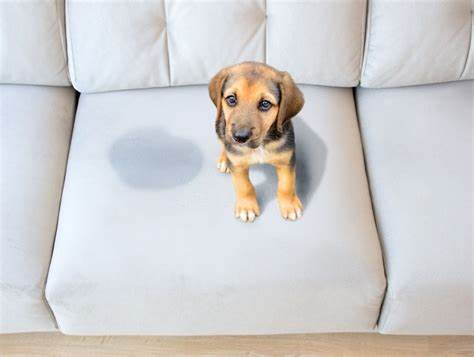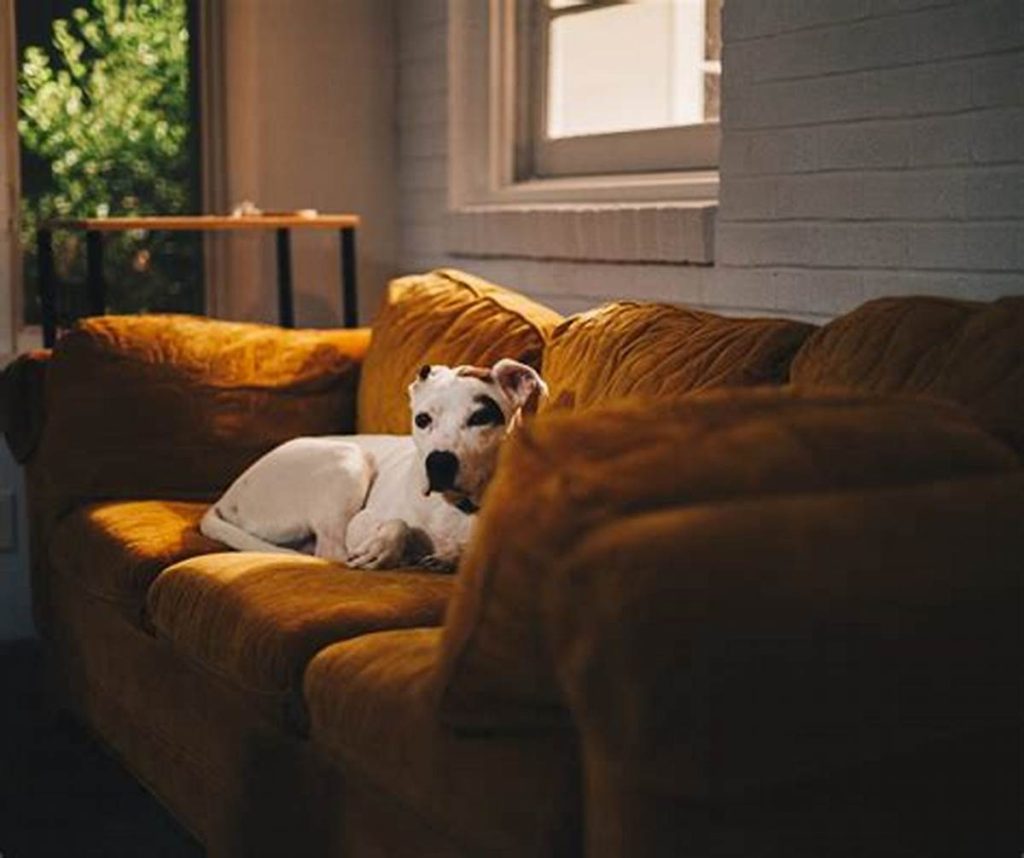As a dog owner, few things are more exasperating than finding your couch soaked in urine. But why do dogs pee on couches, and what motivates this vexing behavior? It’s essential to get to the root causes in order to resolve couch peeing for good. In this comprehensive guide, we’ll explore the many reasons dogs improperly eliminate on couches and how to tackle both medical and behavioral factors.
Common Explanations for Couch Peeing Behavior in Dogs
There are many possible motivations for urinating on couches:
- Medical Conditions – Various health issues like urinary tract infections, bladder stones, kidney disease, or loss of bladder control can lead to frequent peeing and accidents. A vet should evaluate any physical conditions.
- Anxiety and Stress – Highly anxious dogs may pee on couches and other objects when feeling stressed or excited by environmental triggers like loud noises. For these dogs, it’s an involuntary emotional response.
- Territorial Marking – Intact male dogs often urine mark on couches and other prominent objects to claim ownership and spread their scent. Neutering typically greatly reduces this territorial urge.
- Lack of Proper Housetraining – Untrained puppies and adult rescues simply may not understand that couches are unacceptable and off-limits zones for elimination. Patience and constantly reinforced training helps.
- Change in Routine – Dramatic changes like moving homes, schedule disruptions, adding new furniture, or family members leaving can confuse dogs. This upset can temporarily lead to accidents.
- Attention-Seeking Behavior – Some dogs make the association over time that peeing on couches gets major reactions from owners. Even punishment is still rewarding to them with attention. Ignoring the act helps extinguish it.
- Submissive Urination – Very timid, insecure dogs may pee involuntarily when approached suddenly, handled roughly, or disciplined harshly due to fear and anxiety. Gentleness and confidence building curbs submissive peeing.
- Declining Health and Old Age – Senior dogs often develop weaker bladder sphincters and cognitive decline. They may not recognize cues or make it outside in time before an accident occurs. Patience and pee pads can help manage their needs.

Potential Health Risks of Ongoing Couch Peeing
While usually just a frustrating, damaging behavior issue, chronic urination on soft surfaces like couches can pose some health hazards to dogs over time:
- Skin infections – Prolonged contact with soaked urine can lead to rashes, blisters, hot spots, and infections on the abdomen and paw pads.
- Bladder infections – Holding urine for extremely long stretches between indoor accidents can increase bacteria and the risk of painful UTIs.
- Kidney problems – Consistently holding urine stresses the kidneys and can cause or worsen kidney disease over time.
- Dehydration – Some dogs intentionally avoid drinking water to try to prolong the time between their urge to pee and needing to go, leading to dehydration.
- Hormonal imbalances – Particularly in intact, unneutered male dogs, excessive urinary urges may indicate testosterone-related hormone disorders.

Tips for Correcting Couch Peeing Behavior in Dogs
To fully resolve couch peeing issues, consider trying these positive training techniques:
- Veterinary exam – Have your vet give your dog a full check-up to diagnose potential underlying medical conditions like UTIs causing the frequent urination. Treat any physical problems.
- Address anxiety issues – For dogs peeing from stress, work on behavioral modification therapy, calming medications, or pheromone plug-ins as needed to ease their anxiety.
- Stick to a potty schedule – Take your dog outside for regular, frequent potty breaks to reinforce good elimination habits. Praise and treat when they go in appropriate outdoor areas.
- Remove scent triggers – Use enzymatic cleaners on any soiled areas to fully remove the smell that can draw dogs back to pee there again.
- Restrict access – Use baby gates, crate training, or door closing to limit access to problem areas when unsupervised until fully housetrained and accidents stop.
- Reinforce training – Continue supervised training with cue words and lavish rewards for outdoor potties to re-solidify proper habits. Prevent opportunities for mistakes.
- Provide outlets for stress – Give anxious dogs productive chewing outlets like toys when left alone and unable to pee from stress.
- Avoid emotional greetings – For submissive urinators, remain calm when approaching and don’t make direct sustained eye contact, which can seem threatening.
With persistence and by tackling both medical and behavioral components, inappropriate couch peeing can be overcome. Never yell or punish after the fact, as this escalates anxiety. Consult a veterinary behaviorist for extra guidance if needed. Your couch and dog will thank you!
